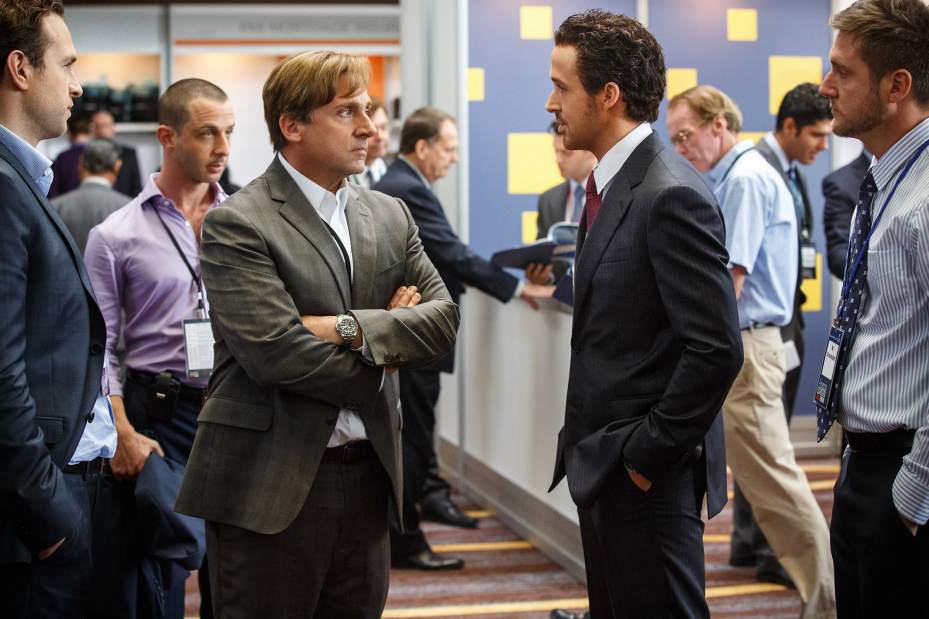Review: In 'The Big Short,' a bet against America pays off
In Adam McKay's comic and clear-eyed adaption of Michael Lewis' “The Big Short,” a handful of finance speculators — outsiders and oddballs — predict a downturn in the housing market only to realize, to their horror and immense profit, that they've effectively bet against America — and won.
It's a rollicking, outrage-fueled odyssey through the financial collapse of 2008, from the carefree offices on Wall Street to the vacant subdivisions in Florida, that gradually reveals not just a market bubble but a colossally bankrupt system and a nation that blissfully teetered into absurdity.
As one of the pre-eminent comedy directors, McKay has shifted into a more realistic, dramatic world only to find a farce too ridiculous for satire. McKay has kept his loose and antic style, leaving his starry cast — including Steve Carell, Christian Bale, Ryan Gosling and Brad Pitt — ample room for improvising. They are part of the enticements of “The Big Short,” which strains hard to make the complexity of its subject digestible and entertaining.
Our central characters are a foursome of (mostly) unrelated investors. There's the glass-eyed, heavy metal-listening trader Michael Burry (Bale), the brash-talking banker Jared Vennett (Gosling), a cynical hedge-fund manager Mark Baum (Carell) and two young investors (John Magaro and Finn Wittrock) who are mentored by Ben Rickert (Pitt), a retired veteran who now disdains Wall Street.
Sifting through the data, they each come to the conclusion that the bedrock of the U.S. economy — the housing market — has quietly been weakening. When everyone is riding the market to record highs, they swim against the tide.
McKay's film is furious, spilling criticism at every door, from the SEC to bond credit ratings companies to the press. But it's also relentlessly playful, with characters speaking into the camera, pointing out inaccuracies in the script (by McKay and Charles Randolph) and stuffing in hip-hop montages.
Gosling is best at the direct address. But the self-aware trickery wears thin. Less overt is the tantalizing way that life lurks on the outside of the frame in pictures of kids on desks and in family obligations canceled for a late night at the office. Within McKay's enjoyable, frightful, passionate rant of a movie is a plea: There's more to life than this, you know.
Jake Coyle is a film critic for the Associated Press.

